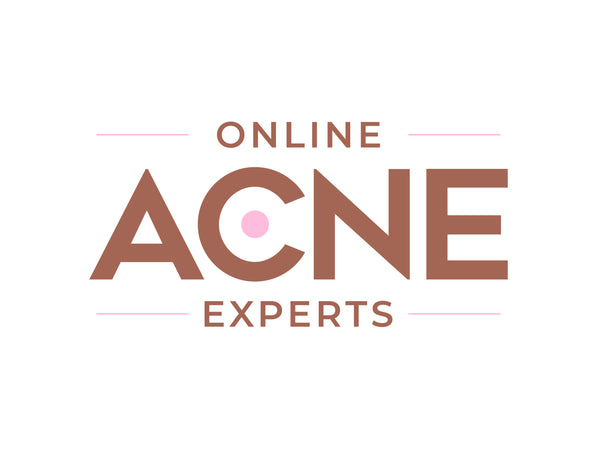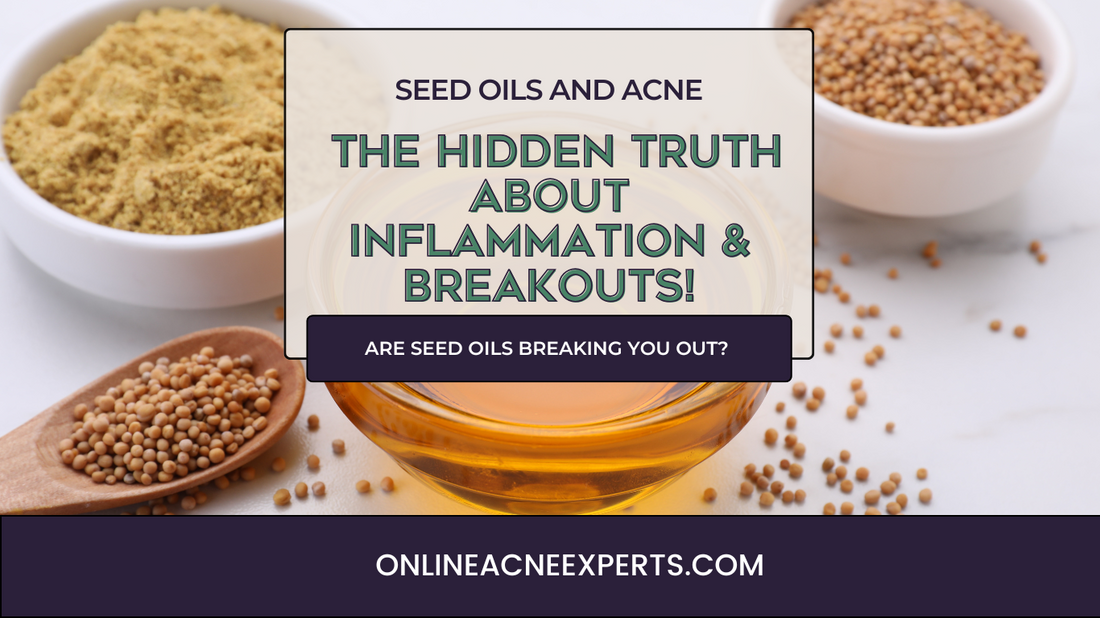Lately, seed oils have been getting the side-eye in health and wellness circles. From nutrition gurus to skincare experts, people are questioning whether these oils are the innocent plant-based ingredients they claim to be—or if they're secretly contributing to breakouts and inflammation. So, what’s the deal? Are seed oils bad for acne-prone skin, or is this just another skincare myth? Let’s break it down.
What Are Seed Oils, Anyway?
Seed oils are oils extracted from the seeds of plants—think sunflower, safflower, canola, soybean, and grapeseed oil. They’re commonly used in cooking, processed foods, and (yep) skincare products. The reason they’ve sparked controversy is that many of them are high in omega-6 fatty acids, particularly linoleic acid, which has been linked to inflammation when consumed in excess. Since inflammation is a key driver of acne, it’s worth taking a closer look at how seed oils affect our skin—both inside and out.
Seed Oils in Skincare: Friend or Foe?
Many skincare products contain seed oils because they’re lightweight, hydrating, and rich in antioxidants. However, not all seed oils are created equal when it comes to acne. Some are actually great for acne-prone skin, while others can clog pores and trigger breakouts. Here’s the breakdown:
Acne-Safe Seed Oils:
✅ Hemp Seed Oil – High in linoleic acid and non-comedogenic (won't clog pores), making it great for balancing oily skin.
✅ Black Cumin Seed Oil – Contains anti-inflammatory and antibacterial properties that help fight acne.
✅ Rosehip Oil – Rich in vitamin A and fatty acids that support skin healing and help fade acne scars.
Seed Oils to Avoid If You Have Acne:
🚫 Soybean Oil – Often genetically modified and high in omega-6, which can contribute to inflammation.
🚫 Cottonseed Oil – Frequently contaminated with pesticides and highly processed.
🚫 Sunflower & Safflower Oils (High Oleic Versions) – Some refined versions can be more occlusive and may not be ideal for acne-prone skin.
What About Consuming Seed Oils?
Here’s where things get even more controversial. Many processed foods contain refined seed oils like soybean and canola oil, which have an imbalanced ratio of omega-6 to omega-3 fatty acids. Excess omega-6 can promote systemic inflammation, which may manifest as—you guessed it—acne. While your body needs some omega-6, the key is balance. Instead of loading up on processed foods, opt for whole-food sources of healthy fats like avocado, wild-caught fish, and nuts (except peanuts, because we know they can trigger acne too!).
Why Is Everyone Talking About Seed Oils?
The big trendy issue is mostly about consuming seed oils, though there’s some debate about using them topically too. The controversy started in nutrition and wellness spaces, where people argue that high consumption of refined seed oils (like soybean, canola, and sunflower oil) is fueling chronic inflammation due to their high omega-6 content. Since inflammation is linked to everything from acne to heart disease, many influencers and functional medicine experts are advocating for cutting them out in favor of traditional fats like olive oil, butter, and coconut oil.
Topically, seed oils aren’t as demonized, and some (like hemp seed and black cumin seed oil) are actually great for acne-prone skin. The concern with skincare seed oils is mostly about their comedogenic rating (how likely they are to clog pores) and whether they contribute to skin irritation. But the big online drama is definitely about dietary seed oils and their role in inflammation and overall health.
In short: The seed oil controversy is mainly a dietary war, but skincare is caught in the crossfire! 🚀
The Verdict: Should You Ditch Seed Oils?
If you have acne-prone skin, you don’t need to ban all seed oils from your life—but you do need to be mindful of which ones you’re using. When it comes to skincare, stick to non-comedogenic, acne-friendly oils like hemp seed and black cumin seed oil. And when it comes to your diet, limit ultra-processed foods packed with inflammatory seed oils to help keep your skin clear from the inside out.
Final Thoughts: Is the Seed Oil Panic Justified?
The truth is, not all seed oils are evil, and not all of them are good. The problem isn’t necessarily seed oils themselves but rather the way they’re processed and consumed. The heavy reliance on highly refined seed oils in processed foods can contribute to inflammation and, potentially, acne. On the flip side, unrefined, cold-pressed seed oils in skincare can have benefits depending on the specific oil and how it interacts with your skin.
At the end of the day, it’s all about balance. Prioritizing whole, nutrient-dense foods while choosing non-comedogenic skincare ingredients is a great way to support clear, healthy skin. So before you swear off all seed oils forever, take a nuanced approach—your skin (and sanity) will thank you.
Got questions about acne-safe skincare? We’re here to help! Check out our Clear Skin Collective for expert guidance on achieving your best skin ever.

